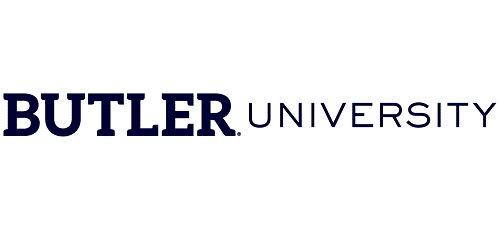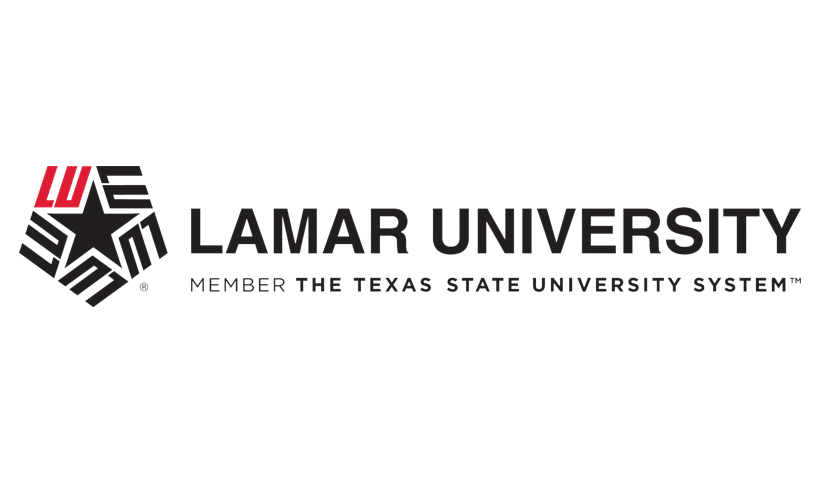Certified clinical mental health counselors (CCMHCs) are professionals who have completed a rigorous academic and postgraduate process to gain certification as clinical mental health counselors. CCMHC certification is obtained from the National Board for Certified Counselors (NBCC), which offers national counseling certification with specialty opportunities, such as this particular mental health certification. CCMHC certification is one of the highest-level professional accreditations available in the field of mental health counseling.
Becoming certified may open the door to many opportunities in the mental health field including obtaining a more established position with higher pay, such as a case management position.
Counselors have the opportunity to specialize in a specific area, such as crisis counseling. Additionally, CCMHC credentialing certifies that the counselor in question is well versed in the ethical and legal dimensions of the counseling profession.
Education Requirements for Certification
A master’s degree is required to become a certified clinical mental health counselor. The curriculum of the master’s program must have at least 60 semester hours dedicated to topics in counseling, and there is a mandatory requirement for coursework in diagnosing and setting up treatment plans in a clinical setting. A handful of specific counseling topics must be covered, such as marriage and family therapy, human sexuality, and violence and abuse situations. At least two semesters should have courses in three specific categories. The master’s program must include at least 15 credit hours of clinical practicum experience as well.
In addition to meeting these curriculum requirements, the program should have regional accreditation to verify that the education students will receive meets NBCC standards. This accreditation confirms that the education includes direct clinical training and supervised experience. In addition to being required for certification, this also aids in the supervision and clinical training needed for state licensure.
Consider a Featured Online Counseling Program
| School and Program Information | Online Program? Entry Requirements | Course Information | |
|---|---|---|---|
|
Walden University
MS in Clinical Mental Health Counseling
 CACREP Accredited CACREP Accredited |
✔ Online
GRE scores not required
|
Walden’s online CACREP-accredited MS in Clinical Mental Health Counseling program can help you become the competent, compassionate counselor you know you can be.
|
Learn More |
|
Northwestern University
Online MA in Counseling
 CACREP Accredited CACREP Accredited |
✔ Online
GRE Not Required
Bachelor's Required |
CACREP-accredited online Master of Arts in Counseling from The Family Institute at Northwestern University. Prepare to pursue licensure in as few as 18 months.
|
Learn More |
|
Grand Canyon University
Master's Degree in Counseling
 CACREP Accredited CACREP Accredited |
✔ Online
|
CACREP-accredited MS in Clinical Mental Health Counseling. Emphases: Marriage & Family Therapy, Christian Counseling, Childhood & Adolescence Disorders, & Trauma.
|
Learn More |
|
Liberty University
MA: Clinical Mental Health Counseling
 CACREP Accredited CACREP Accredited |
✔ Online
Online with required intensives
|
Our CACREP-accredited online master’s in counseling helps you become a skilled mental health counselor ready to empower others for positive change.
|
Learn More |
|
National University
Master of Science in Clinical Mental Health Counseling
WSCUC Accredited
|
✔ Online
GRE Scores Not Required
|
Focused on training highly skilled counselors to provide impactful and culturally sensitive mental health services in their communities.
|
Learn More |
|
Mid-America Christian University (MACU)
Master of Science (MS) in Counseling
Higher Learning Commission (HLC)
|
✔ Online
100% Online
|
Oklahoma’s largest MS in Counseling program, with emphases in addiction and substance abuse, applied behavioral science, clinical mental health counseling, and more!
|
Learn More |
|
The Chicago School
M.A. in Clinical Mental Health Counseling
 CACREP Accredited CACREP Accredited |
✔ Online
Bachelor's Degree Required.
|
This online CMHC program prepares students for a career offering mental health services in a variety of settings. CACREP-accredited.
|
Learn More |
|
Colorado Christian University
Clinical Mental Health Counseling, M.A. - Online Curriculum
 CACREP Accredited CACREP Accredited |
✔ Online
Bachelor's Degree
|
Optional program emphasis in Marriage and Family Therapy and Substance Use Disorders. CACREP-accredited.
|
Learn More |
|
Butler University
Master of Science in Mental Health Counseling
|
✔ Online
Bachelor's Degree Required
|
Graduates are prepared to go on to become licensed counselors in addictions and mental health in select states. Graduate in just 2.5-3 yrs.
|
Learn More |
*Sponsored Counseling Programs
For detailed degree information, view the guides to:
Online CACREP Accredited programs | Online MPCAC Accredited programs
Top Degree Programs for CCMHCs
Becoming a certified clinical mental health counselor starts with the right education. Read below for more information on some of the top degree programs currently accepting applicants.
Texas Tech University
The School of Health Professions at Texas Tech University offers the Master of Science in Clinical Mental Health Counseling. This program can prepare individuals for diagnosing behavioral problems and providing treatment to their patients and their families in individual and group settings.
This program’s curriculum should satisfy the requirements for national certified counselor (NCC) and CCMHC certification and mental health professional licensure in many states, although requirements may vary based on location. Students should review requirements and laws in their state to determine if they need to add further supervision or clinical experience hours.
The 60 credit hours within the program’s curriculum cover core courses in various counseling categories and in assessment of patients. There is additional coursework in more specialized topics, such as dealing with patients in crisis and psychopharmacology. Twelve credit hours are reserved for clinical experience, and there are elective opportunities that are not required for graduation.
Students can enter the program in the fall or spring semester each year. Submission requirements include official transcripts, completion of a bachelor’s degree in psychology or a related field from an accredited institution, at least a 3.0 GPA within the most recent 60 credit hours, an updated resume, a personal essay, and at least two letters of recommendation. No GRE scores are required for this program, and there is a fee attached to the application needed with the other submission items.
Oregon State University
Oregon State University’s Master of Counseling program has a concentration in Clinical Mental Health Counseling. This program is offered in a hybrid format with classes online and offered at the Wilsonville campus. Accredited by the Council for the Accreditation of Counseling and Related Educational Programs (CACREP), this program has a curriculum that should satisfy the requirements for many state licensures across the country.
The 90-credit-hour curriculum is geared for part-time students who are able to travel to the campus location, with courses being held on campus for two weekends each term. Online coursework is distributed through the OSU Ecampus system. Students should expect to complete the program within three and a half to four years.
In addition to the academics, the program requires a 100-hour practicum and an internship with a minimum of 600 clinical hours. Up to 24 credit hours of work can be put toward the internship requirement. Students are also required to complete 10 sessions of group counseling for students to gain experience and familiarity going beyond working just with individuals.
University of West Alabama
The University of West Alabama’s Master of Science in Clinical Mental Health Counseling is available online for applicants looking to learn the skills needed to diagnose and help patients who are dealing with mental health issues. Sixty credit hours are required for the CCMHC program, which generally takes two to three years to complete. Course schedules are divided up into eight-week sessions to give students the opportunity to move through the courses quickly and allow for a clinical practicum.
In addition to the experience gained in clinical work and supervision, concentration course examples include Career Development and Counseling, Strategies for Crisis Intervention, and Counseling Multicultural Populations. The curriculum is divided up into 45 credit hours within the concentration, six credit hours of elective opportunities, and nine credit hours in Life-Span Development and Learning, Techniques of Educational Research, and Educational Statistics. Up to nine credit hours may be accepted in the graduate transfer process.
Prospective students should complete an application, send official college transcripts that detail competence in this field, and clear a background check. In addition, there is a portfolio that applicants should complete that reviews current career goals, acknowledges cultural differences, and offers submission recommendations for graduate programs, such as an updated resume and three letters of recommendation.
St. Bonaventure University
St. Bonaventure University’s online Master of Science in Education Clinical Mental Health Counseling gives students the ability to work with individuals one-on-one or in group sessions and be part of the intervention process to help treat mental health disorders. There is additional education covering communication within different cultures, assessing and developing treatment plans, and the legal aspects of the business model within mental health counseling.
Sixty credit hours are needed to complete this CACREP-accredited program along with 100 practicum hours and 600 internship hours. Courses in this program include Abnormal Psychology, which explores unique conditions and how to diagnose them, and Research Methods, which covers multiple ways to collect and analyze research data.
This program’s curriculum should prepare students to complete the National Clinical Mental Health Counselor Examination, which is required for various licenses and CCMHC certification. The school reports that there is a 95% pass rate for their graduates who take the licensed professional counselor exam in certain states.
Related:
- Licensed Mental Health Practitioner (LMHP)
- History of Mental Illness
- Licensed Mental Health Counselor (LMHC)
- Licensed Clinical Mental Health Counselor (LCMHC)
- CACREP Accredited Counseling Programs
Sources:
Council for the Accreditation of Counseling and Related Educational Programs, Counseling Specialties
Council for the Accreditation of Counseling and Related Educational Programs, For Students
Council for the Accreditation of Counseling and Related Educational Programs, Transition to Clinical Mental Health Counseling
National Board for Certified Counselors, Certified Clinical Mental Health Counselor
U.S. Bureau of Labor Statistics, Substance Abuse, Behavioral Disorder, and Mental Health Counselors
What Does It Take To Gain Certification?
A prerequisite to applying for CCMHC certification is becoming a national certified counselor (NCC). This requires several steps including earning a master’s degree in counseling.
To receive CCMC certification, an individual must complete over 3,000 hours of direct client work and 100 hours of supervision after graduation, acknowledge the Code of Ethics set by the NBCC, and obtain a professional endorsement from an expert who was not part of the individual’s supervision process. The National Clinical Mental Health Counseling Examination, offered in April and October each year, must be passed as well.
After getting CCMC certification, holders must recertify every five years and will need to meet specific requirements to keep their status. This includes continuing education in psychotherapy theory, group counseling, psychology and psychopathology, and general testing. Candidates must also reaffirm their commitment to the ethics policy, and all fees must be paid.
CCMHC Career Options
Becoming a licensed clinical professional counselor in mental health is one of the most popular choices for those with the clinical mental health counselor certification, and there are plenty of career opportunities to choose from. Receiving this type of education prepares these professionals to deal with individuals or groups dealing with behavioral problems, relationship struggles, substance abuse, and emotional instability. Duties include not only diagnosing problems in patients, but developing successful treatment plans by implementing processes they have studied and practiced.
According to the U.S. Bureau of Labor Statistics (BLS), substance abuse, behavioral disorder, and mental health counselors have a median annual salary of $47, 660, with a projected job growth rate of 25% between 2019 and 2029, which is much faster than average. This means that clinical mental health counseling opportunities will likely continue to increase for prospective candidates.
Mental health counselors work primarily in outpatient mental health centers, but they also work in individual and family services, hospitals, residential mental health centers, and government facilities.
Job descriptions can vary for mental health counselors, but it is important to distinguish between the role of counselors and that of psychologists and psychiatrists. Psychologists and psychiatrists have more advanced training than counselors.
A doctorate degree in counseling or clinical psychology is generally required to become a psychologist, which furthers theoretical studies in human behavior. Psychiatrists are medical doctors who are required to complete medical internships and at least three years of postgraduate residency training. Psychiatrists, unlike psychologists and counselors, are able to prescribe medication for mental health patients in the treatment process.













